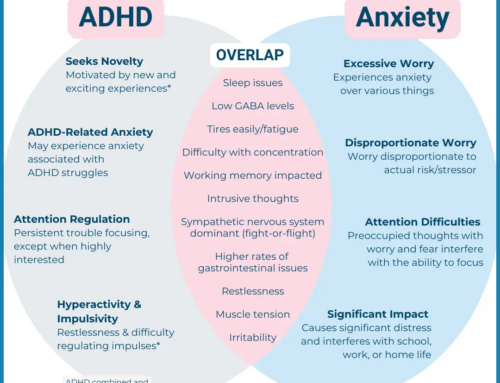Executive Functions Skills. They’re magical unicorns when we can figure out what they are and how they fit into our dynamic day-to-day life.
But when we think of ways in which we can strengthen and improve EFs in our children, sometimes we get stuck. We turn to Yellow Parachute to help give them the tools to set them up for success and to learn their EF superpowers that they can harness. But what if we could help them continue that work, in everyday activities, outside of Yellow Parachute time? And why is this an important item for your “to do” list in 2024?
Inhibitory control, or inhibition, is how we control our behavior and attention, and regulate our emotions. Children with poor inhibitory control between ages 3 and 11 grew up to have poorer health, earn less money, rated themselves less happy, and commit more crimes 30 years later than their peers who demonstrated much better inhibitory control (Moffitt et al., 2011).
The authors of this study concluded that even small, positive changes in a young person’s inhibitory control could have future cascading effects on their lives.
Working memory is what we do with information that we have to hold onto in our minds, make sense of, and interpret. It is important in any linguistic information that a person reads or hears (like when a teacher gives students a task to be completed after they finish an assignment they are working on), for mentally re-organizing items (like a to-do list) and conceptualizing and comprehending causal relationships (like what happens on tomorrow’s test if I don’t study tonight). Cognitive flexibility bears significant importance in being able to shape our perspectives, like being able to see someone else’s point of view or looking at problems from a different perspective.
Computerized and interactive games and physical activity are examples of strategies and programs that have been shown to improve EFs (in varying degrees) in young children (Diamond, 2012). Computerized training was shown to have the most positive effect on children’s working memory and reasoning.
There were a couple of caveats, however. First, the positive effects came from computer-based games and training that were specifically designed for EF improvement. This is great but comes with the complication of accessibility; it’s not widely disseminated and can be expensive. The second caveat is that this type of EF building activity has not shown success in children 4-6 years old.
How many of us have told our kids to go jump on the trampoline or do some jumping jacks when they just can’t seem to settle down (in other words, their inhibitory control is out of whack)? Guilty. However, working up a sweat isn’t such an easy solution. While it does wear a kiddo out, aerobic exercise alone has not shown an improvement in EFs. The key is finding a physical activity that incorporates both exercise and character building (like karate) or activities that involve exercise and mindfulness (like yoga).
When 5–11-year-olds were randomly assigned to take part in traditional tae kwon do or standard physical education, the children assigned to tae kwon do improved more on inhibitory control than their classmates who had been assigned to standard physical education (Diamond, 2012). Why? Because traditional forms of martial arts like karate and tae kwon do focus on a whole-person approach, believing that physical exercise is tantamount to character building.
A study conducted on the effects of yoga on children’s EFs randomly split 10–13-year-old girls to either yoga or physical training for an hour and fifteen minutes, 7 days a week, for one month (Manjunath & Telles, 2001). The girls who were assigned to the yoga group showed improvement in planning and execution on a task that requires the use of all three EFs. This was especially evident when the task was more complex.
Now we know that EFs can be improved in children (even the little ones!) and we know of a couple of techniques and strategies that work. The best recipe for success involves a multi-pronged approach.
EF improvement programs that are most successful will be those that
1) consistently exercise the kids’ EF muscles with new and dynamic activities,
2) bring the child joy, pride, a sense of belonging, and social fulfillment and
3) benefits their bodies through exercises that build strength, fitness, and overall good health.
Now that you know more about the importance of these skills, here’s a challenge for February!
What is one small step you can take toward building your kids’ EF Skills outside of time with a Yellow Parachute Coach?
- Ask parents, teachers, friends you know of local karate, yoga, or tae kwon do studios that would have classes you can observe.
- If you have the Peloton or other fitness app, search yoga and stretching activities and do a class together.
- Find out what kinds of character building themes your kids’ school brings into the school year. Maybe there’s room for you to volunteer to do a short values lesson or bring in a guest speaker!
Got a good idea? Pass it along in the comments!
Yours in the Journey,
Melanie
-Guest Writer, Mom, & Graduate Psychology Student
Works Cited:
Diamond, A. (2012). Activities and programs that improve children’s executive functions. Current Directions in Psychological Science, 21 (5), 335–341. https://doi.org/10.1177/0963721412453722
Farran, D.C., & Wilson, S.J. (2011, November). Is self regulation malleable? Results from an evaluation of the Tools of the Mind curriculum. Paper presented at the Peabody Research Institute Colloquium Series, Nashville, TN
Manjunath, N.K., & Telles, S. (2001). Improved performance in the Tower of London test
Following yoga. Indian Journal of Psychological Pharmacology, 45, 351-354.







